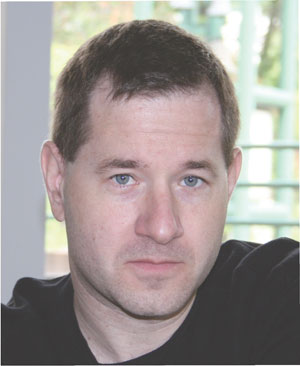Toronto lawyer Mitch Kowalski wants to change how lawyers do business by dragging them kicking and screaming into the new realities.

According to Kowalski, the legal profession hasn’t kept pace with the changes around the world and lawyers need to stop living in a bubble.
“You know what I’m passionate about? Changing the profession,” said Kowalski, 49. He’s author of the book Avoiding Extinction: Reimagining Legal Services for the 21st Century.
“There is a reason why legal fees are outrageously expensive and one of the reasons is the way we practise is not how a real business operates.”
Kowalski has been speaking out about the issue a lot and points to hourly billings and backward technology as examples of areas crying out for change.
It’s no surprise, then, that he’s a big fan of unbundling legal services. “I love it,” he says.
“It’s the way to deal with the lack of access to legal services in the this province. I think it’s the way of the future.”
The Law Society of Upper Canada updated its rules in the fall to give guidance to the growing number of lawyers and paralegals who are offering unbundled services. The goal is to guide lawyers offering limited-scope retainers.
Unbundling allows clients to get work done more cheaply by doing some of it themselves. “The benefits are for the clients,” says Kowalski, who practises real estate and corporate commercial law.
“It’s a cost savings for the client. The client comes to you and says, ‘I need certain work done.’ Now whether that’s document review or making some preliminary appearances or preparing pleadings, you can parcel out what the lawyer does and what the client feels they can do.”
There was and still is concern from people in legal circles about the quality issues.
“The big negative really is the fact that people are worried that there’s going to be too many non-lawyers in the court system,” says Kowalski.
“For example, if you have a bunch of untrained lawyers, that’s going to flood the court system and that’s going to affect justice.”
There’s also concern over frivolous lawsuits. Lawyers worry that if they handle only part of a matter and something goes wrong on the client’s side of things, they’ll end up facing a lawsuit nevertheless.
“I think they are overblown,” says Kowalski.
“I think a lot of people are just afraid of change and people are not used to dealing with legal services other than the way they’ve always done them.”
Communication is a key issue when offering limited-scope retainers. Lawyers have to make sure they’re on the same page with the client on exactly what counsel will be doing.
“You have to set out exactly who is doing what, where, and how,” says Kowalski. “A lawyer should tell a client, ‘If you’re going to negotiate that lease and I’m just going to give you a bunch of clauses, the chips are going to fall based on what you do and my role is limited to these pieces only. Otherwise, you’re on your own.’”
Unbundling is also a way lawyers can tap into markets that they may not have been able to.
“People are saying lawyers are too expensive,” says Kowalski.
“If you provide unbundled services, that should theoretically give you more work than you are getting now. At least you are getting some part of the work rather than none of the work.
That partial work may actually lead into other paying work from that client because maybe they feel they should pay a bit more to get your expertise in counselling on different aspects than they thought before.”
Legal commentator and lawyer James Morton says he’s supportive of unbundling as long as lawyers are cautious in the way they do it. “When you start having lawyers or a paralegal doing part of a file or doing part of a case, they may not be aware of the big picture,” says Morton.
“They may not be aware of everything and they can miss things. Similarly . . . there’s a danger that the parts not done by legally trained individuals will be problematic.”
Morton hasn’t seen a case where a client has sued a lawyer, an issue he doesn’t believe will be a significant problem.
“If lawyers are conscious of the limits of the retainer and make it very clear in writing that you are retaining me to do X and only X, then I don’t see how the clients will have much comeback if they complain you didn’t do Y.”
Kowalski hasn’t heard of any problems either. “The world has not fallen apart,” he says.
“Everything is working as it should. I haven’t heard any outcry at all or heard of any problems.
Certainly, I think I would have heard through blogs or through dealings with other lawyers in the community of a huge rash of problems and I haven’t seen that.”
He wonders, however, about how unbundling could affect judges as they face a potential influx of self-represented litigants.
“That might make their job a little bit tougher, but that is just the way it is,” he says.

 According to Kowalski, the legal profession hasn’t kept pace with the changes around the world and lawyers need to stop living in a bubble.
According to Kowalski, the legal profession hasn’t kept pace with the changes around the world and lawyers need to stop living in a bubble.